Search the Special Collections and Archives Portal
Search Results
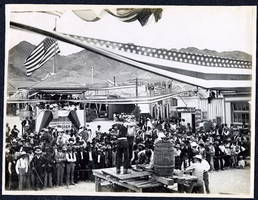
Photograph of a double handed drilling contest,Tonopah (Nev.), early 1900s
Archival Collection
Description
Image
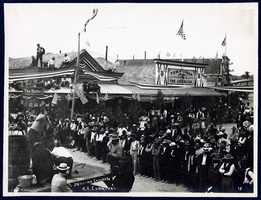
Photograph of Tonopah Railroad Carnival, Tonopah (Nev.), early 1900s
Archival Collection
Description
Image
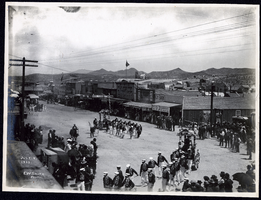
Photograph of a Fourth of July Parade, Tonopah (Nev.), July 04, 1903
Date
Archival Collection
Description
Image
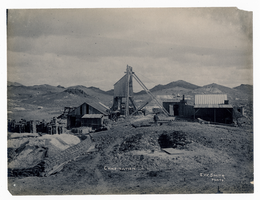
Photograph of Combination Mine, Goldfield (Nev.), early 1900s
Archival Collection
Description
Image

Photograph of Black Butte, Esmeralda (Nev.), early 1900s
Archival Collection
Description
Image
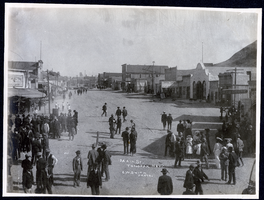
Photograph of people and buildings on Main Street, Tonopah (Nev.), early 1900s
Archival Collection
Description
Image

Transcript of interview with Mike Gausling by David G. Schwartz, December 7, 2016
Date
Archival Collection
Description
Text
Ruth E. Hazard oral history interview
Identifier
Abstract
Oral history interview with Ruth Hazard conducted by Jerry L. Erb on March 10, 1981 for the Ralph Roske Oral History Project on Early Las Vegas. At the time of the interview, Ruth had lived in Nevada for over forty years. Ruth discusses living and working in Las Vegas and Carson City, Nevada. She also covers various subjects including: the atomic tests and the growth of the hotel industry.
Archival Collection
Lomie Heard oral history interview
Identifier
Abstract
Oral history interview with Lomie Heard conducted by Stephen M. Singer on February 09, 1980 for the Ralph Roske Oral History Project on Early Las Vegas. Heard discusses education over the span of thirty years, and includes an overview on the building of the University of Nevada, Las Vegas. She also discusses Nellis Air Force Base, jet airplanes at Nellis, military families, and the Nevada Test Site.
Archival Collection

Transcript of interview with Mindy Unger-Wadkins by Barbara Tabach, October 28, 2015
Date
Archival Collection
Description
In this interview, Unger-Wadkins discusses growing up in Las Vegas? close-knit Jewish community in the 1960s and 1970s, and involvement with various Jewish youth organizations and activities. She also describes her career in public relations, reflecting upon the unique challenges faced when interacting with the public, and with politics, in her positions. Unger-Wadkins ends by describing her current work in land development, particularly the history of the Three Kids Mine and the technical and political process of ensuring the land is suitable as a residential area.
Text
